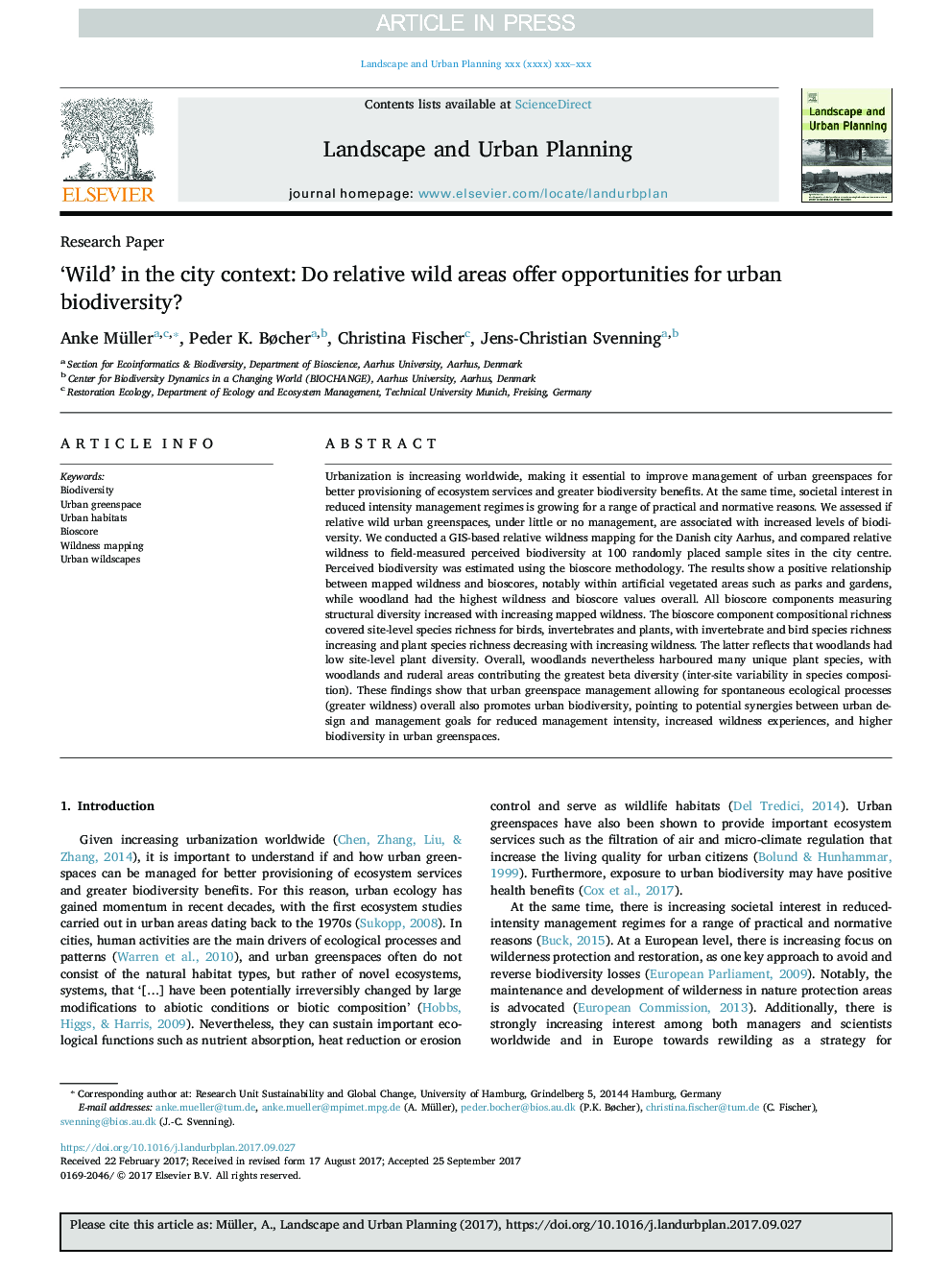| Article ID | Journal | Published Year | Pages | File Type |
|---|---|---|---|---|
| 7460114 | Landscape and Urban Planning | 2018 | 10 Pages |
Abstract
Urbanization is increasing worldwide, making it essential to improve management of urban greenspaces for better provisioning of ecosystem services and greater biodiversity benefits. At the same time, societal interest in reduced intensity management regimes is growing for a range of practical and normative reasons. We assessed if relative wild urban greenspaces, under little or no management, are associated with increased levels of biodiversity. We conducted a GIS-based relative wildness mapping for the Danish city Aarhus, and compared relative wildness to field-measured perceived biodiversity at 100 randomly placed sample sites in the city centre. Perceived biodiversity was estimated using the bioscore methodology. The results show a positive relationship between mapped wildness and bioscores, notably within artificial vegetated areas such as parks and gardens, while woodland had the highest wildness and bioscore values overall. All bioscore components measuring structural diversity increased with increasing mapped wildness. The bioscore component compositional richness covered site-level species richness for birds, invertebrates and plants, with invertebrate and bird species richness increasing and plant species richness decreasing with increasing wildness. The latter reflects that woodlands had low site-level plant diversity. Overall, woodlands nevertheless harboured many unique plant species, with woodlands and ruderal areas contributing the greatest beta diversity (inter-site variability in species composition). These findings show that urban greenspace management allowing for spontaneous ecological processes (greater wildness) overall also promotes urban biodiversity, pointing to potential synergies between urban design and management goals for reduced management intensity, increased wildness experiences, and higher biodiversity in urban greenspaces.
Related Topics
Life Sciences
Agricultural and Biological Sciences
Ecology, Evolution, Behavior and Systematics
Authors
Anke Müller, Peder K. Bøcher, Christina Fischer, Jens-Christian Svenning,
